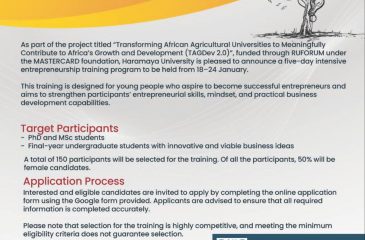Haramaya University Bolsters Climate Resilience Research with Advanced Hydrological Modeling Training
Haramaya University (HU) is currently conducting a crucial three-day training program titled “Climate Resilience, SDSM and SWAT for Predicting Hydrological Responses Under Future Scenarios.”
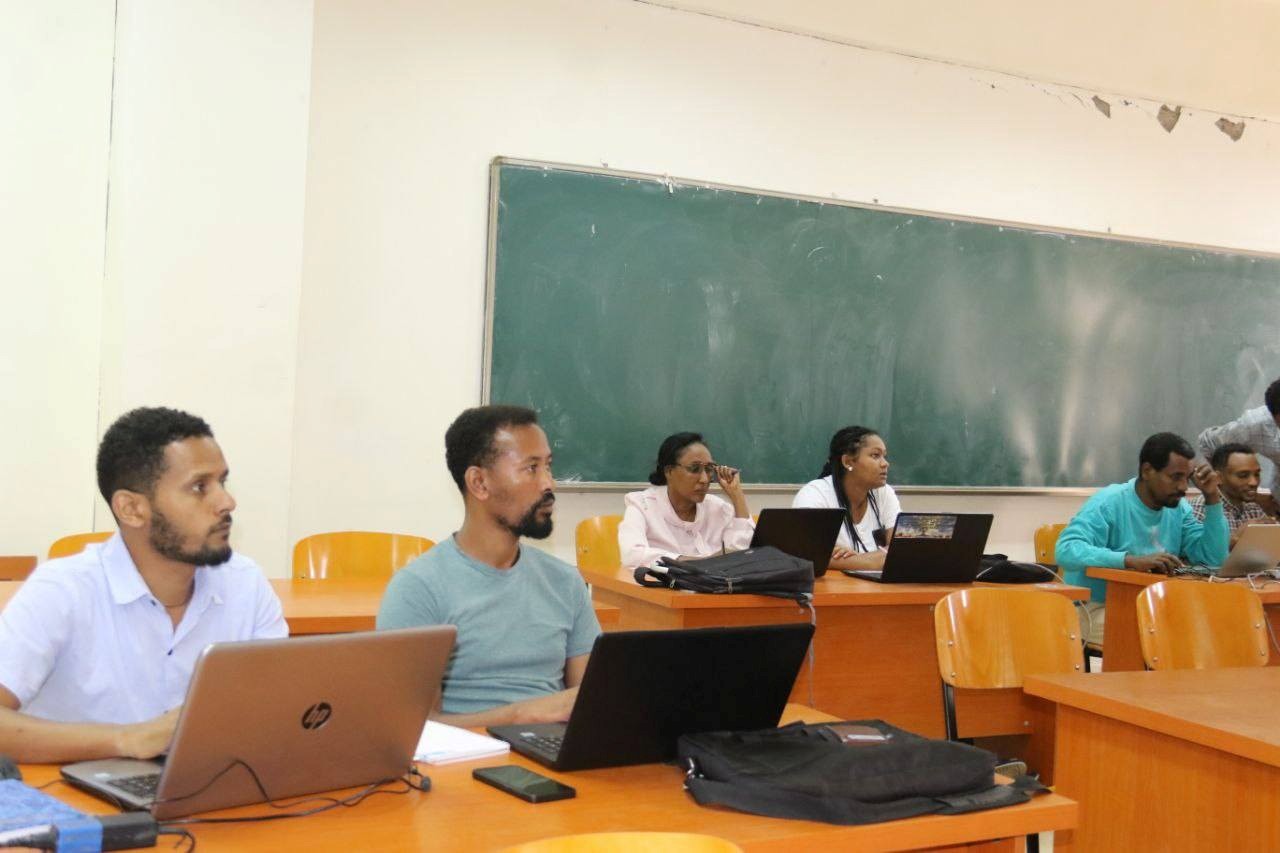 The specialized training, designed for academic staff and postgraduate students from across the university, underscores HU’s commitment to equipping its researchers with advanced tools to address pressing environmental challenges.
The specialized training, designed for academic staff and postgraduate students from across the university, underscores HU’s commitment to equipping its researchers with advanced tools to address pressing environmental challenges.
The initiative aims to significantly enhance understanding and application of sophisticated modeling techniques in environmental sciences, particularly in forecasting the impacts of climate change on vital natural resources.
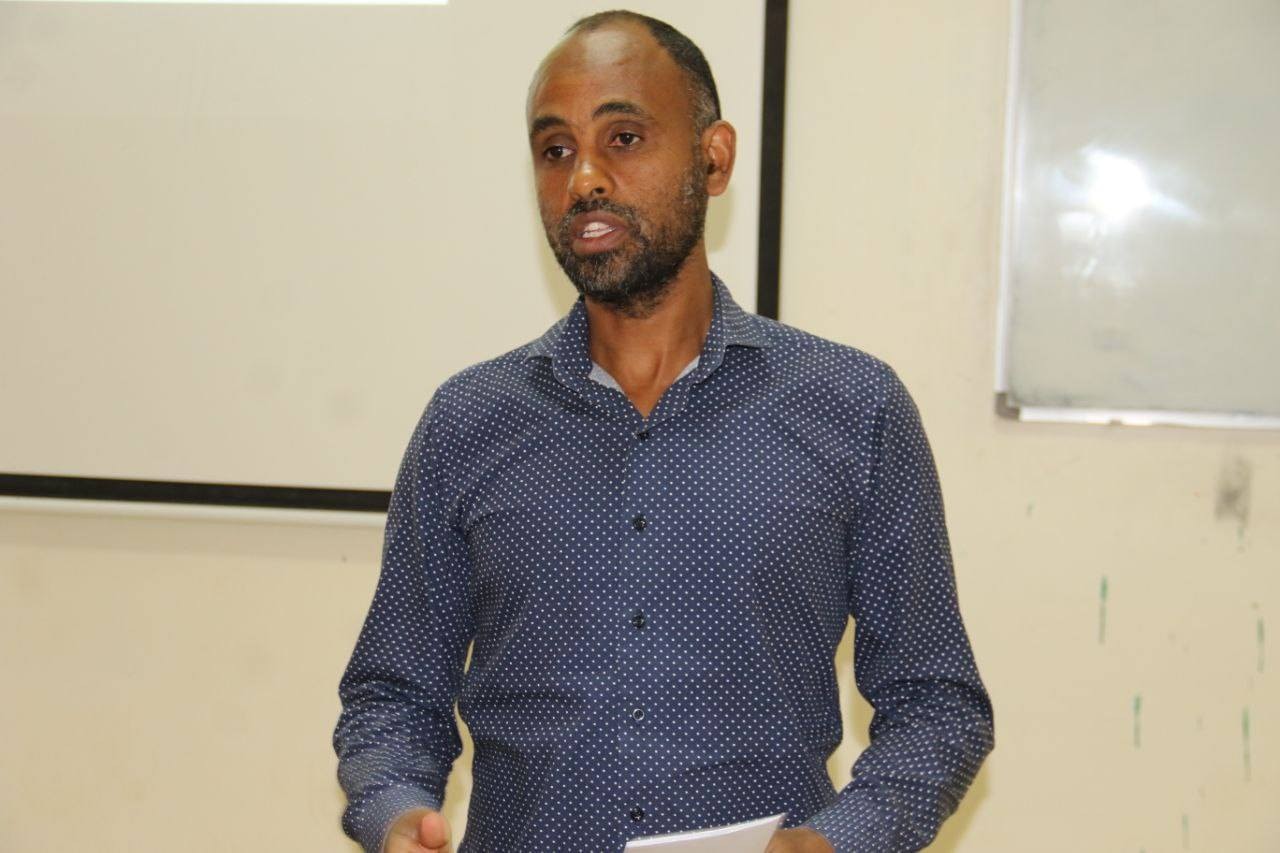 During the opening remarks, Dr. Wesagne Berehane, Associate Dean of the College of Agriculture and Environmental Sciences, emphasized the critical need for such expertise. “Training on SDSM (Statistical DownScaling Model) and SWAT (Soil Water Assessment Tool) applications is immensely important for predicting the impacts of climate change on water, soil, and crop productivity,” stated Dr. Wesagne.
During the opening remarks, Dr. Wesagne Berehane, Associate Dean of the College of Agriculture and Environmental Sciences, emphasized the critical need for such expertise. “Training on SDSM (Statistical DownScaling Model) and SWAT (Soil Water Assessment Tool) applications is immensely important for predicting the impacts of climate change on water, soil, and crop productivity,” stated Dr. Wesagne.
He highlighted that the lack of such capabilities currently contributes to significant challenges, including natural resource degradation, land degradation, and the effects of unpredictable rainfall and temperature shifts on food production. “This training is designed to significantly enhance the capacity of our academic staff and postgraduate students, advancing their skills in research analysis.”
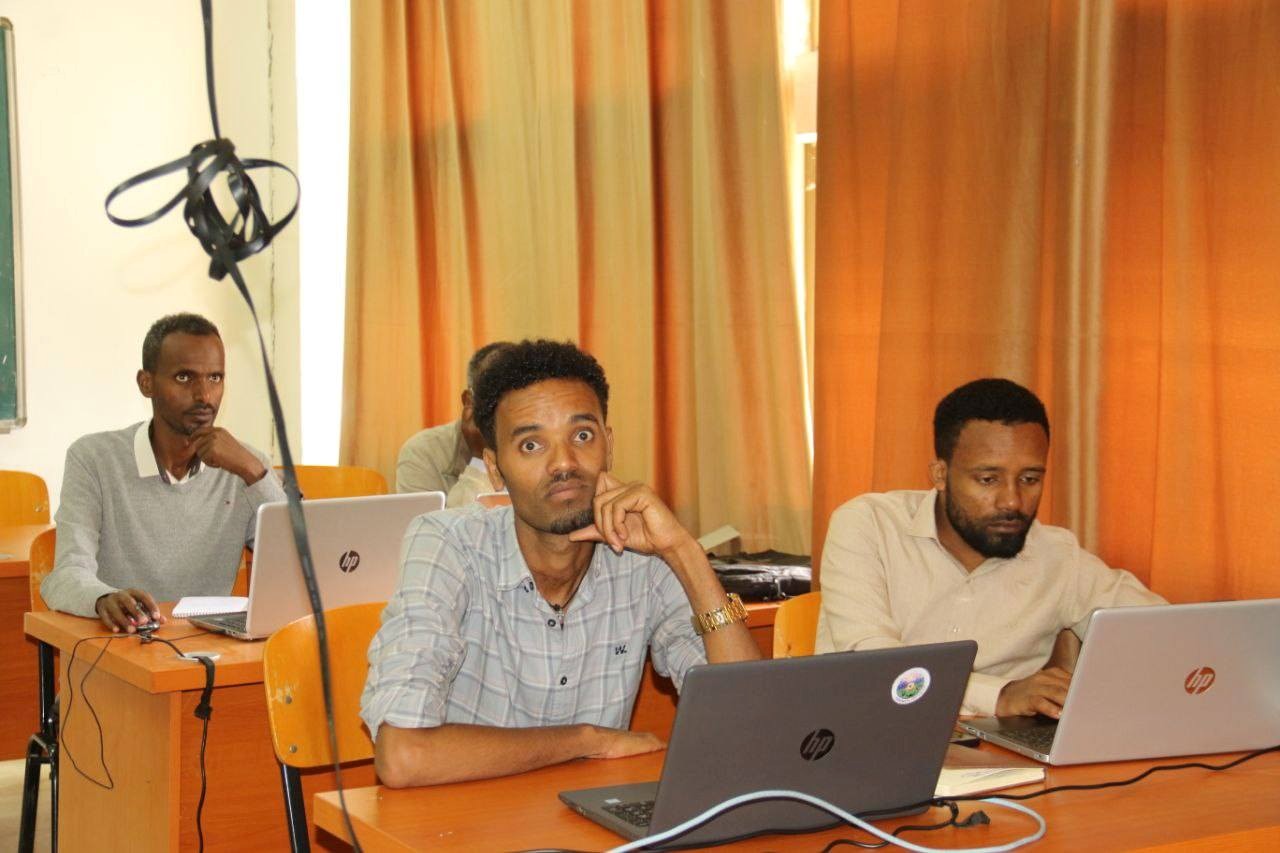 The training, which commenced recently and will run until May 29, 2025, is jointly delivered by Mr. Girma Asefa Bogale from the School of Natural Resources Management and Environmental Sciences at the College of Agriculture and Environmental Sciences, and Dr. Haftu Berhane from the College of Natural and Computational Sciences at Haramaya University.
The training, which commenced recently and will run until May 29, 2025, is jointly delivered by Mr. Girma Asefa Bogale from the School of Natural Resources Management and Environmental Sciences at the College of Agriculture and Environmental Sciences, and Dr. Haftu Berhane from the College of Natural and Computational Sciences at Haramaya University.
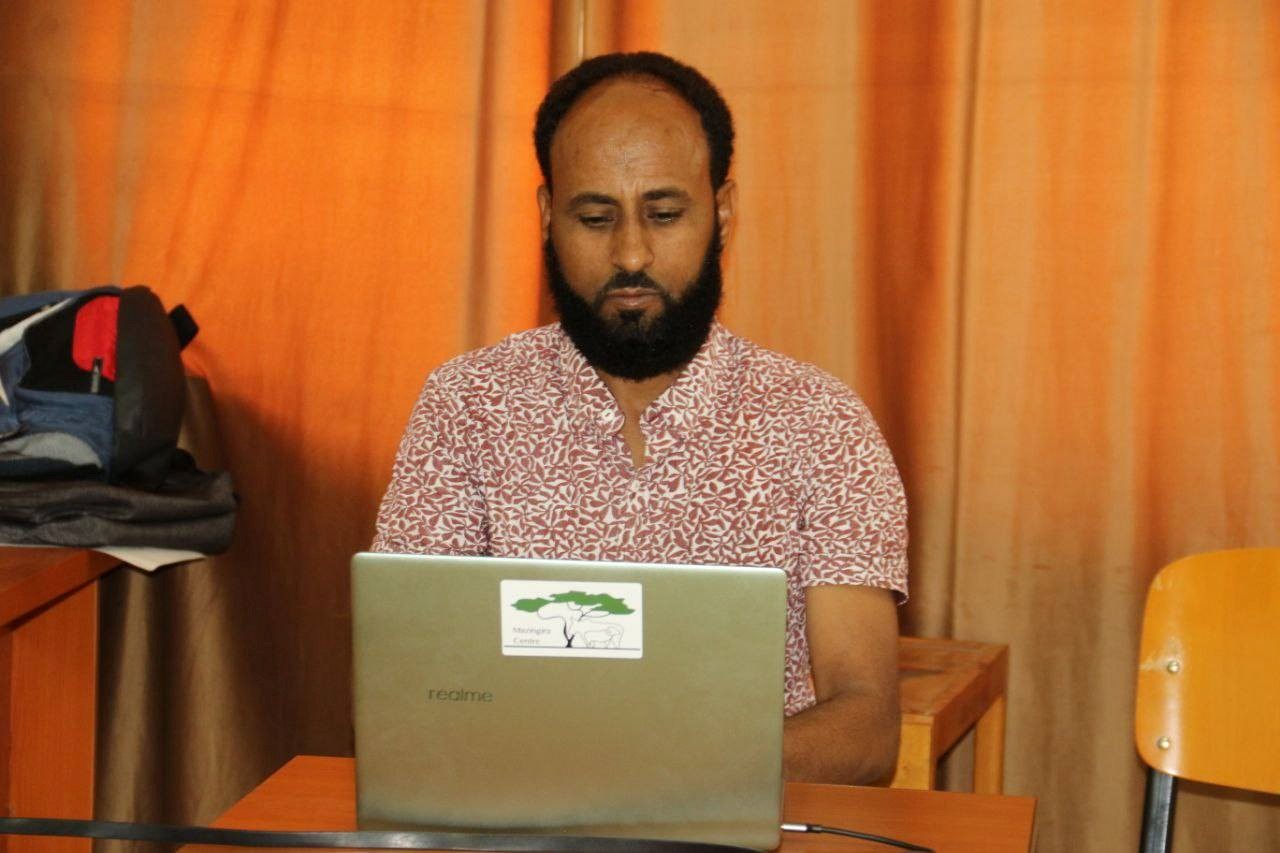 According to the trainers, the program focuses on the practical application of SWAT and SDSM for predicting hydrological responses under future climate scenarios. “In light of the importance of understanding the effects of climate change on agricultural productivity, we believe that providing training on SWAT and SDSM modeling will greatly enhance the capabilities and research potential of our staff and students,” explained Mr. Girma Asefa Bogale.
According to the trainers, the program focuses on the practical application of SWAT and SDSM for predicting hydrological responses under future climate scenarios. “In light of the importance of understanding the effects of climate change on agricultural productivity, we believe that providing training on SWAT and SDSM modeling will greatly enhance the capabilities and research potential of our staff and students,” explained Mr. Girma Asefa Bogale.
He further added that “this training will enable them to conduct robust and comprehensive assessments of climate change impacts on crop, soil, and water yield, contributing significantly to the knowledge base in this field and empowering them to address pressing agricultural challenges.”
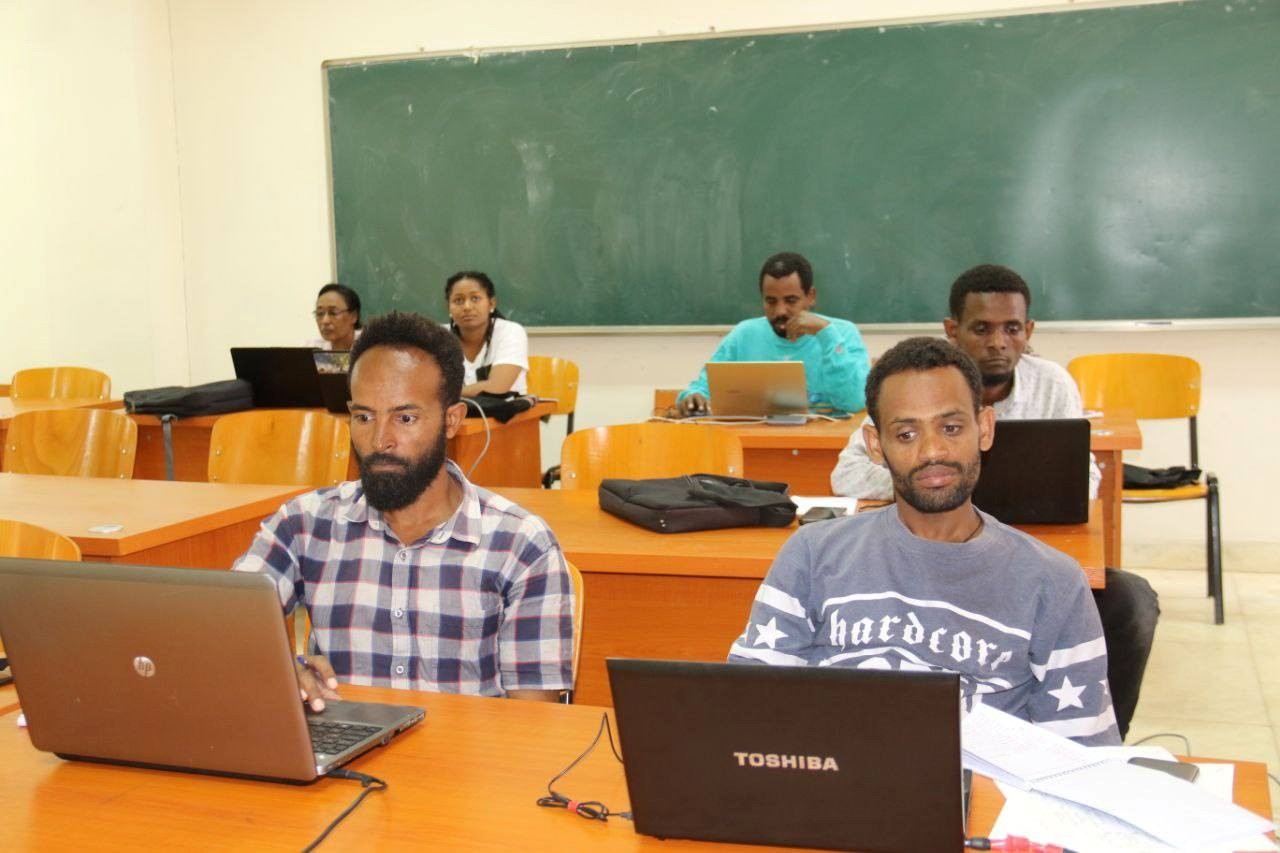 The comprehensive curriculum covers both theoretical foundations and practical applications, providing participants with a solid understanding of utilizing SWAT and SDSM software for detailed crop, soil, and water modeling purposes. This initiative is expected to greatly benefit the academic staff and foster advanced research capabilities among postgraduate students.
The comprehensive curriculum covers both theoretical foundations and practical applications, providing participants with a solid understanding of utilizing SWAT and SDSM software for detailed crop, soil, and water modeling purposes. This initiative is expected to greatly benefit the academic staff and foster advanced research capabilities among postgraduate students.
The training is being held at Haramaya University and is expected to conclude on Thursday 29 May 2025.
Reporter:- Shemsedin Mohammed
Photogrpher:- Foad Ahmed
HU Public & International Relations Directorate

